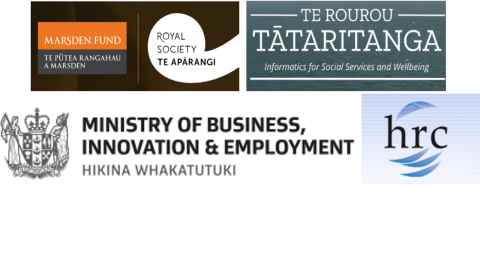2021 Colloquium
The 2021 Colloquium started with an introduction from our Director, Associate Professor Barry Milne, who outlined the following presentation topics for the day.
Introduction to COMPASS Research Centre
Barry Milne, COMPASS Director
Going Straight Home? Housing for people leaving prison
Alice Mills & Anika Terry
Existing international research has suggested that stable housing can reduce re-offending amongst those leaving prison, but little is known about this relationship in Aotearoa New Zealand. Going Straight Home? is a mixed methods study that aims to explore the relationship between stable housing and recidivism in New Zealand. Drawing on a longitudinal quantitative data analysis from interviews with 200 people prior to release from prison and 6 and 12 months post-release, this paper will examine the strength of this relationship in Aotearoa New Zealand and potential confounding factors. It will also discuss the need to consider the stability of post-release housing if recidivism is to be reduced.
Impact of Chronic Health Conditions on the Family and Whānau Across the Life Course
Barry Milne
Chronic diseases, such as cancer, cardiovascular disease and diabetes have a direct effect on the middle and later life-course, but the indirect effect of chronic diseases on whānau has been less well-studied, and is likely to have impacts across the entire life-course. This research investigates the impact of chronic conditions on the wider family and whānau at different life stages – from the youngest young to the oldest old. The research involves a large scale quantitative investigation of impacts on family and whānau across a range of areas of functioning. We also undertake an in-depth qualitative study of Tokelauan families to assess the family, household and community strengths that allow people to thrive despite the challenges of living in families with chronic disease.
Examining Measures of Family Socioeconomic Position in the New Zealand Context
Natalia Boven
It is well-established that individual socioeconomic position (SEP) affects a range of health and social outcomes. However, individuals are embedded within families, households, and communities, and socioeconomic resources are commonly shared across different levels of social connection. This research project examines different ways of measuring family level SEP in the New Zealand context using data from the Integrated Data Infrastructure (IDI). This talk will present the results of comparing selected methods of combining and indexing SEP for cohabitating couples identified using 2013 Census data for modelling several health outcomes.
Investigating Linkage Error in the IDI
Eileen Li
The project aims to identify missed and false links in the IDI. I will describe possible approaches for identifying missed and false links. More specifically, false links may be identified using spine indicators, agency unique identifiers across refreshes and the clerical review dataset.
How Might News Coverage of Complex Science be Improved Through Journalist-Scientist Working Relations?
Komathi Kolandai-Matchett
Marine ecosystem science is difficult for scientists to explain and journalists to report. This multidisciplinary collaborative study used expert sampling and online surveys to understand the perspectives of journalists and scientists (two presumably divided groups) about their working relationship, ways to connect, appropriate news content, and ways to report ecosystem complexities. Recommendations are made for supporting stronger journalist-scientist working relations and improving news coverage. Learnings may be relevant to other complex science fields that might benefit from enhanced journalist-scientist interactions.
The Māori-in-Between? Identity, Health, and Social Service Access Needs
Lara Greaves
Nō hea koe? Translated as “where are you from?” is a common question in Te Ao Māori. In the answer, one expresses their identity links to people, places, and Iwi. This answer is important for health and well-being: a strong cultural identity has been shown to buffer against the effects of racism and continued colonisation. However, tracing whakapapa can be fraught with difficulties, meaning that a segment of the Māori population may feel they fall in between mainstream social service providers and Kaupapa Māori or Iwi-based providers. This research seeks to explore differences between Māori in cultural connection, mainly focusing on those who do not know their Iwi, but also including other combinations of descent, ethnicity, and Iwi affiliation. This talk presents our initial findings around the demographics of different descent/ethnicity/knowing Iwi combinations and their experiences of racism and identity in Te Kupenga.
